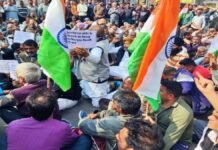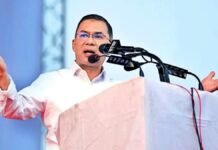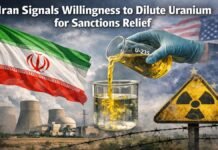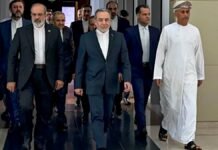
Key Points:
- Sanctions Recommended: The US Commission on International Religious Freedom (USCIRF) has urged targeted sanctions against India’s intelligence agency, RAW, over alleged involvement in assassination plots targeting Sikh separatists.
- Religious Freedom Concerns: The panel also recommended designating India as a “country of particular concern” due to worsening treatment of religious minorities.
- India’s Denial: India dismissed the allegations, calling the USCIRF a “biased organization with a political agenda.”
- Geopolitical Implications: Analysts believe the US is unlikely to act on these recommendations due to its strategic partnership with India against China.
Washington D.C: The US Commission on International Religious Freedom (USCIRF) has called for targeted sanctions against India’s external intelligence agency, the Research and Analysis Wing (R&AW), over its alleged role in assassination plots against Sikh separatists. The recommendation was part of the panel’s annual report released on March 25, 2025, which also highlighted deteriorating religious freedom conditions in India.
Allegations Against R&AW
The USCIRF claims R&AW was involved in transnational plots targeting Sikh separatist leaders in the US and Canada. Tensions between India and the US escalated after Washington charged former Indian intelligence officer Vikash Yadav in 2023 for allegedly orchestrating a foiled assassination attempt on pro-Khalistan leader Gurpatwant Singh Pannun. While India views Sikh separatists as security threats, it has consistently denied involvement in such operations.
The panel’s report also criticized what it described as India’s increasing use of disinformation and hateful rhetoric against religious minorities, particularly during the 2024 Lok Sabha elections.
Religious Freedom Concerns
The USCIRF recommended that the US government designate India as a “country of particular concern” (CPC) for systematic violations of religious freedom. It cited rising attacks on religious minorities, discriminatory laws like anti-conversion statutes, and hate speech propagated by political leaders. The report accused Prime Minister Narendra Modi’s Bharatiya Janata Party (BJP) of fostering an environment of hostility toward Muslims and other minority groups.
The Indian government has rejected these allegations, with the Ministry of External Affairs labeling USCIRF a “biased organization with a political agenda.” Officials stated that such reports misrepresent facts and undermine India’s democratic values.
Broader Geopolitical Context
The USCIRF also flagged Vietnam for similar concerns about religious repression but acknowledged that both India and Vietnam are key partners for the US in countering China’s influence. Analysts believe this strategic alignment makes it unlikely that Washington will impose sanctions or act on the panel’s recommendations. Historically, human rights concerns have been overlooked to maintain strong bilateral ties with New Delhi.
Implications for US-India Relations
The report comes at a time when US-India relations are deepening through initiatives like the “U.S.-India COMPACT” agreement launched earlier this year. Both nations have pledged closer cooperation in defense, technology, and trade to counter shared threats from China. However, issues like alleged transnational plots and religious freedom violations could complicate this partnership.
India’s Response
India has consistently criticized USCIRF reports as politically motivated and biased. In response to previous allegations, Indian officials have highlighted government programs aimed at benefiting all communities equally, such as electrification drives and subsidies. Despite these efforts, international watchdogs continue to raise concerns about religious discrimination and human rights abuses in the country.
While the USCIRF’s recommendations may not lead to immediate action, they underscore growing international scrutiny of India’s domestic policies and their impact on global partnerships. As both nations navigate these challenges, balancing strategic interests with human rights concerns will remain a delicate task for policymakers on both sides.



















































